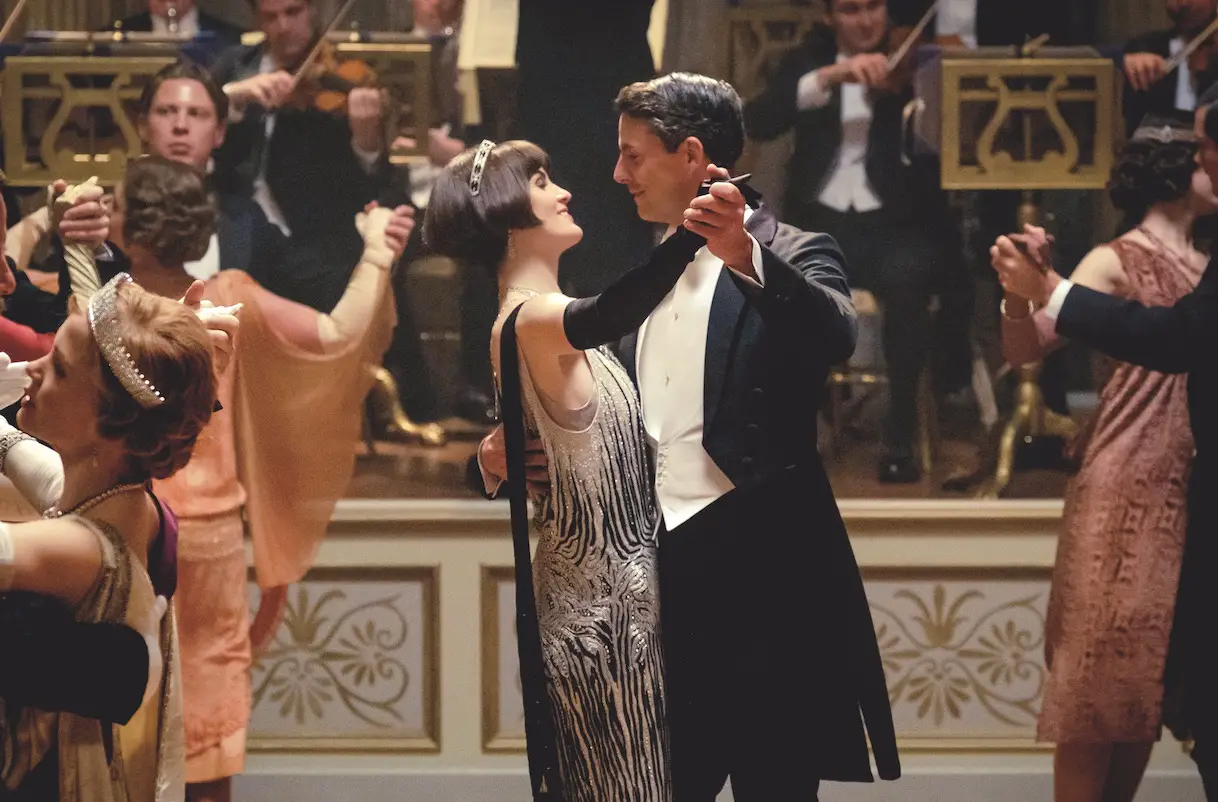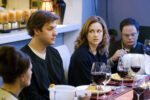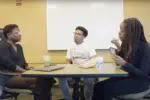The British period drama “Downton Abbey” showcases the glitz and not-so-glamorous life of the aristocratic Crawleys and the people who serve them. Set in the early 1900s after the Titanic sunk in the Atlantic and killed the family’s heir apparent to the estate, the historical drama officially aired in the United Kingdom in 2010 and much later in the United States, following its success across the pond. Between the scandals of the haves and secrets of the have-nots, “Downton Abbey” captured many hearts.
The series ended after a five-year run of six seasons, yet creator Julian Fellowes was careful to leave the door open for future opportunities.
To be more specific, Fellowes left the door open for a feature film — and, boy, are we thankful for it — allowing audiences across the globe back into the lives of the characters they know and love.
He talked about the differences between making a TV show and a movie and the challenges of moving between forms in an interview. “I was excited but also quite daunted,” Fellowes admitted. “They are a different thing, a television series and a movie. You can take stories across different episodes and do all sorts of things. Whereas in a movie, every story has to be resolved and every character has to have a story.”
He continues, “That was quite a mathematical challenge to get it all fitted in and working for a film. But to go on with the stories and characters of Downton, that was pleasant to me. I like them all. I’ve grown used to them over the last 10 years, and I enjoy them.”
The grand experience of the “Downton Abbey” film hits screens on Sept. 13 in the United Kingdom and Sept. 20 in the United States. Here’s what to expect next from this fall’s highly anticipated film.
And the Plot Thickens
Fellowes may not have turned his back on “Downton Abbey,” but there are others who did. Maggie Smith, who plays Violet Crawley, seemed rather reluctant to join the cast for the film adaptation.
The actress told The Telegraph that coming back to screens would be overkill and that the only foreseeable return would be to mourn her character’s timely death.
“I just think it’s squeezing it dry. Do you know what I mean? I could croak it, and it would just start with the body,” she said.
But I could not disagree more.
The Dowager Countess of Grantham is far too precious to lose. While it would be a nice reprieve from her constant quips and sarcasm, there is so much more to anticipate for the storyline of this new movie.
Additionally, in the trailer, viewers finally get a taste of what is in store for the family at Downton. The story picks up two years after the series finale (1927). Lord Grantham (Hugh Bonneville) announces the arrival of the royal family, throwing the entire house into disarray.
The changing times were always a thorn in the backs of characters like Lord Grantham, and, at a time like this, Downton needs all the help they can get. Lady Mary (Michelle Dockery) remains at the helm of the estate in all of her fierce glory, yet something is still missing to bring together an estate worthy of a king and queen.
If you know anything about “Downton Abbey,” it must be the extravagance of the larger-than-life castle and epic parties. With the royals coming to town, one can only imagine the splendor we are in for.
There Just Might Be Hope for New Romances
The cast and crew have kept extremely tight-lipped about production. Aside from the trailer and behind the scene pictures posted on social media, there has not been any further information leaked about what fans can anticipate.
Still, the footage available packed quite a punch if you were paying close enough attention. It seems some of the characters might get a happy ending, after all.
For instance, it is easy to miss the chaste kiss shared between Tom Branson (Allen Leech) and his mystery lover, but it is there nonetheless. Branson’s journey at Downton has been something worth witnessing; however, the series finale left fans in suspense. Would Branson ever marry again after losing Sybil (Jessica Finlay)?
According to these clips, he just might.
Another character who hasn’t had much luck in the romance department is Thomas Barrow, who is played by Rob James-Collier. But Barrow’s luck might also be changing. Although homosexuality was still frowned upon during this time, fans can find comfort knowing Barrow will not be a part of another unrequited love subplot.
Fellowes made a cryptic comment about potential romances to the Los Angeles Times. “They were the two that weren’t, in that sense, settled,” he says. “I had a reluctance to disturb what had been established.”
Downton Is Welcoming New Additions
Let’s be frank, “Downton Abbey” is always welcoming new additions. It is simply what they do, but I am excited for the storylines accompanying these fresh faces.
Lady Maud Bagshaw (played by Imelda Staunton), who is married to Jim Carter (Carson), supposedly connects the Crawleys to the royals in the film. The trailer also hinted that she and the Dowager Countess might not get on so well. Then again, who does the Dowager get on with?
Tuppence Middleton (“War & Peace,” “Sense8”), who plays Lucy Smith, the lady maid of Lady Maud Bagshaw, spills a little tea about what kinds of dynamics to expect from the characters.
“[Lucy Smith] travels with her to visit Downton along with the royal family. So there’s this whole new group of people that come in, and the Downton regulars have to manage all these new personalities,” Middleton told an interviewer. “And she also possibly has a little love story with someone.”
Hm, I wonder who it might be.
Tears, Tears and More Tears
“Downton Abbey” is not new to tugging on the ol’ heartstrings. One can anticipate intense, heartwarming scenes to come in this adaptation. It is one of the many things the series has always done well.
Fans have grown up with these characters and watched their stories with bated breath. Even the cast of the show were emotional about coming back because the film was the one thing to which everyone could look forward. Now, it has finally arrived, and it might be the first of several.
“In show biz, as in practically everything else, one must never say never,” Fellowes teased. “Obviously if there was a real demand for another film … then I’m sure we’d all try to see if we could make it work. I don’t feel I did anything deliberately that would prevent another film.”
















